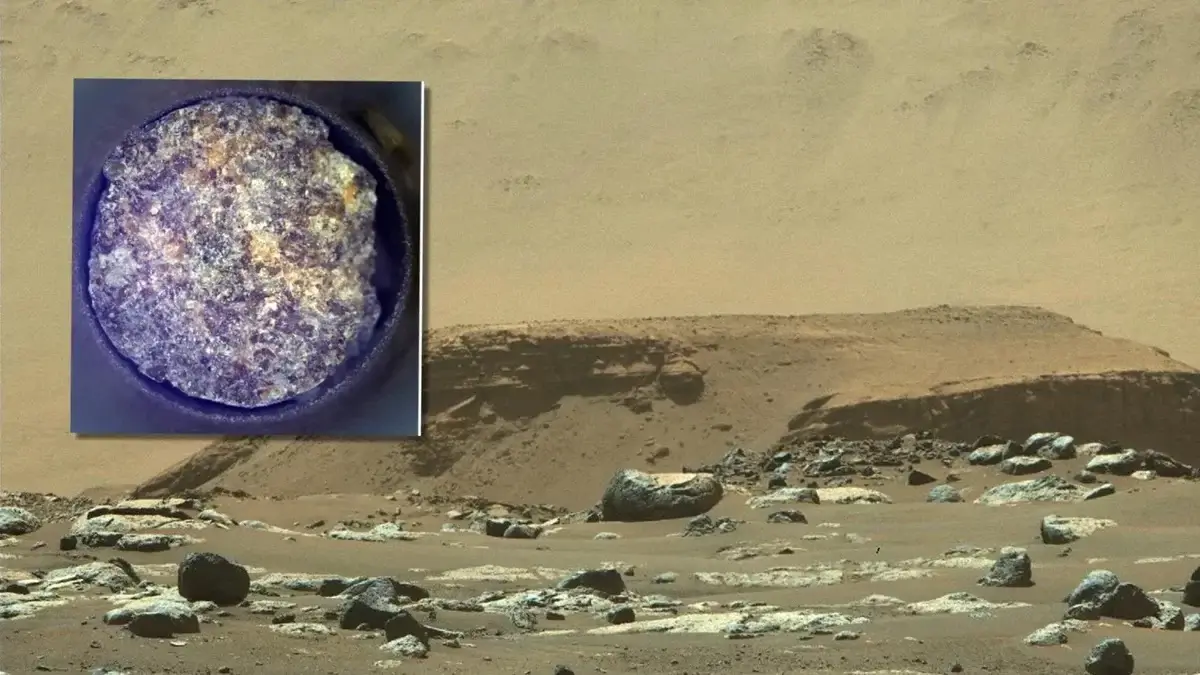Discovery strengthens the possibility of life on Mars

Scientists from NASA and Imperial College London have discovered traces on the surface of Mars that may be associated with the first signs of life. The researchers studied rocks from the Jezero crater and obtained data indicating that they contain organic matter and traces of reactions similar to biochemical processes on Earth. The scientific article about this was published in the prestigious journal Nature.
Scientists analyzed rocks from a bright area known as Bright Angel. As it turned out, these rocks consist of sedimentary layers formed in a calm water environment - a lake or on the shore. They found small structures enriched in iron phosphate and iron sulfide. Experts say that these structures may have formed as a result of reactions with organic carbon. On Earth, such processes are often associated with the activity of microorganisms.
“This discovery is of great importance. The samples we have studied are some of the strongest evidence yet that biological processes existed on Mars,” said Sanjiv Gupta, a professor at Imperial College London.
As is known, the Perseverance rover, which has been operating in the Ezero crater since 2021, has taken samples from the Bright Angel region and is storing them in a special capsule. These samples are expected to be returned to Earth in the 2030s.
Matthew Cook, a representative of the British space agency, also praised the results: “The data obtained are one of the most reliable evidence that conditions existed on Mars for microbial life. Although caution is required in drawing final conclusions, this discovery brings humanity one step closer to solving the fundamental question: “Are we alone in the universe?”
Read “Zamin” on Telegram!





















